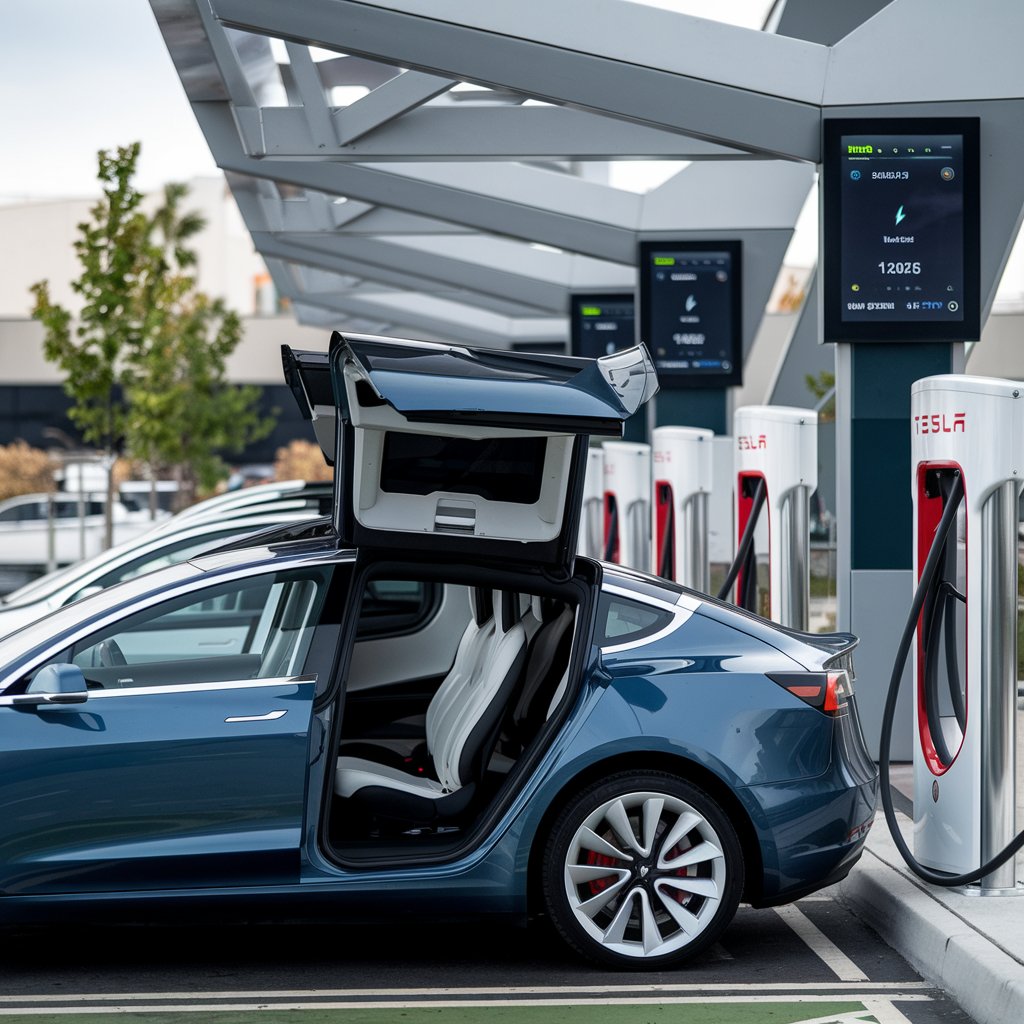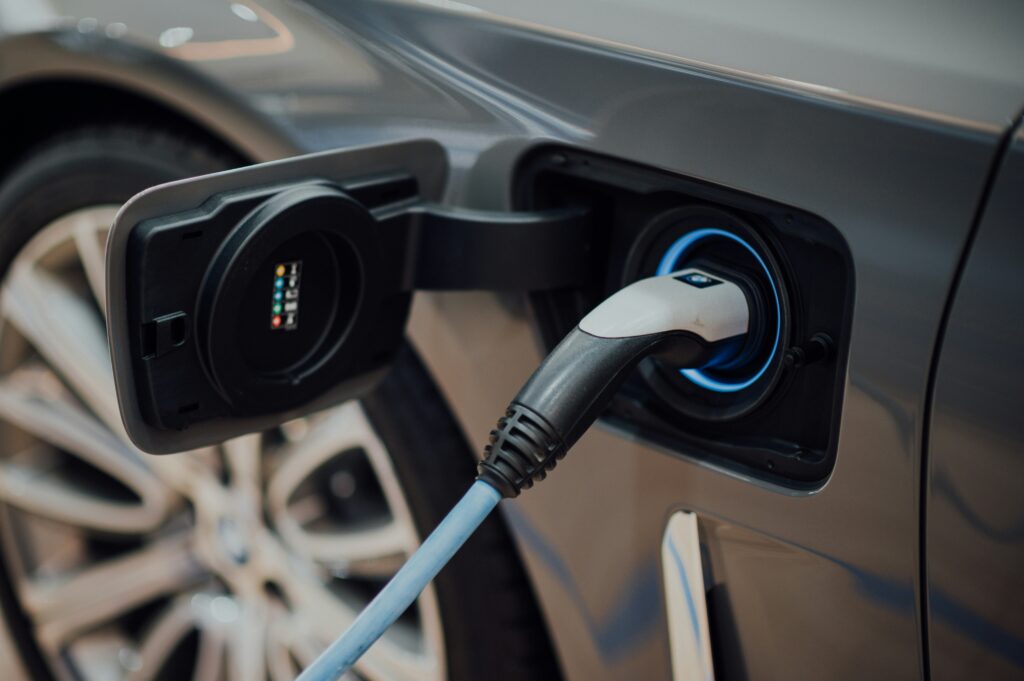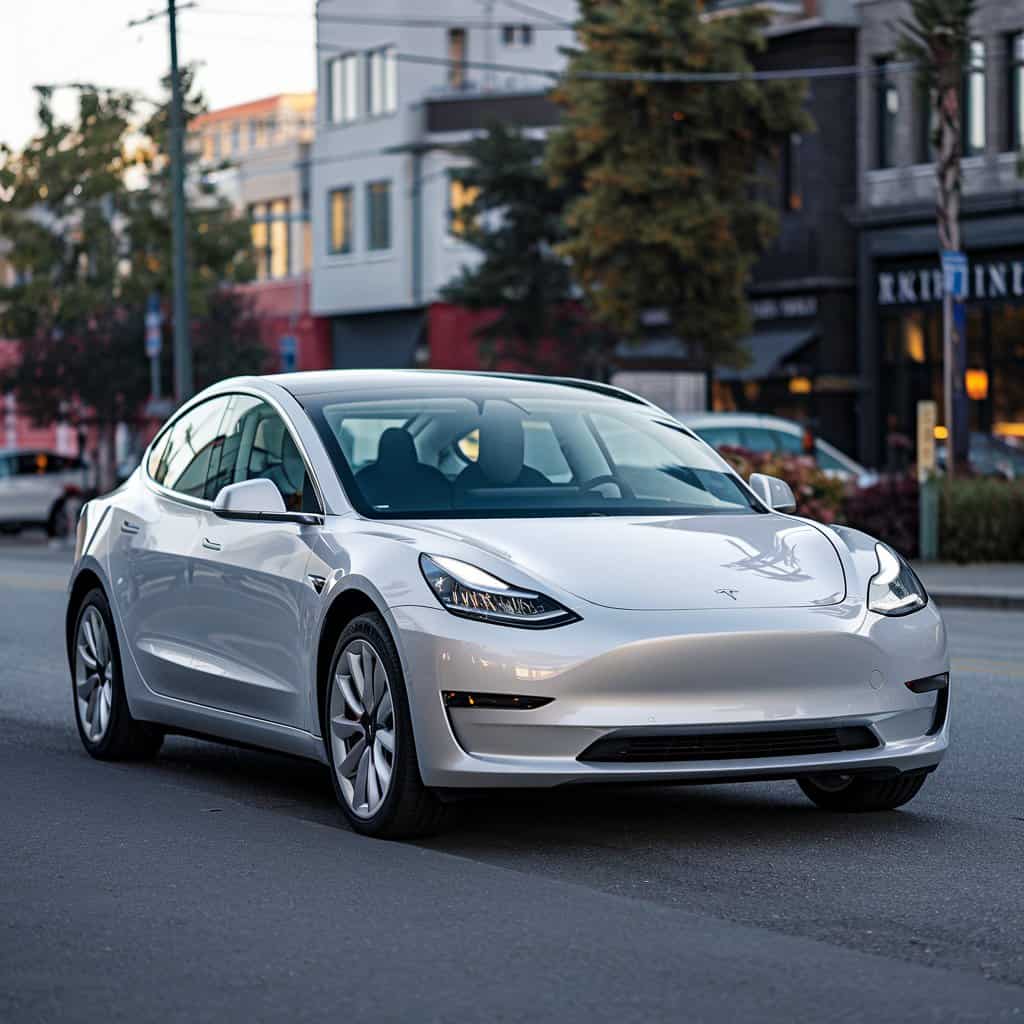Electric cars in Greece have transitioned from being a niche option to a pivotal force in reshaping the global automotive landscape.
In Greece, a country renowned for its picturesque landscapes and a growing commitment to sustainability, electric vehicles (EVs) are steadily gaining ground.
With the world pivoting towards greener modes of transportation, EVs provide an elegant, eco-friendly solution, offering a futuristic alternative to traditional petrol and diesel engines.
But the shift isn’t just about technology—it’s about redefining the way we think about mobility, the environment, and the future.
In this exploration of the burgeoning electric car trend in Greece, we’ll dissect the myriad benefits, the evolving infrastructure, and the challenges that still need to be overcome as Greece charges ahead into the electric era.

Why Electric Cars?
Electric cars have several advantages that make them a great choice for both the environment and drivers:
- Zero Emissions: Unlike conventional cars that run on fossil fuels, electric cars produce no exhaust emissions, which helps to reduce air pollution and the country’s carbon footprint.
- Lower Running Costs: Charging an electric car is typically much cheaper than refueling a petrol or diesel car, saving owners money in the long term.
- Government Incentives: In Greece, the government offers subsidies and tax incentives for those who purchase electric vehicles, making it more affordable to make the switch.
- Low Maintenance: With fewer moving parts compared to a combustion engine, electric cars generally require less maintenance, leading to fewer trips to the mechanic.
Zero Emissions: A Breath of Fresh Air for Greece’s Environment
Perhaps the most critical advantage of electric vehicles is their environmental impact—or rather, their lack thereof. Unlike conventional cars that rely on fossil fuels, electric vehicles produce zero exhaust emissions. In a country like Greece, where urban areas like Athens and Thessaloniki have long struggled with pollution and smog, EVs offer a much-needed respite.
Consider the bustling streets of Athens, where traffic congestion is a daily reality. Imagine if, instead of the fumes of petrol and diesel, the air remained crisp, free from the typical pollutants that cloud the skyline. Each electric car on the road means fewer harmful particles in the air, helping to significantly reduce the country’s overall carbon footprint. And it’s not just about the air we breathe—it’s about the long-term health of Greece’s ecosystems, from its vibrant coastal cities to its verdant inland regions.
Lower Running Costs: Saving Both the Environment and Your Wallet
Beyond the ecological advantages, EVs also appeal to the economically conscious driver. Charging an electric car is considerably cheaper than refueling a petrol or diesel vehicle. With energy prices fluctuating, many drivers are discovering that they can significantly reduce their monthly transportation costs by making the switch to electric.
Take this scenario: a typical commute across Athens or Thessaloniki could cost a fraction of what you would spend on petrol. Over time, these savings accumulate, potentially offsetting the initial higher purchase price of an electric vehicle. Plus, with fewer moving parts, EVs require less maintenance than traditional combustion engines. Fewer oil changes, no need to replace spark plugs, and less wear and tear on engine components all contribute to reduced maintenance costs—another financial incentive for going electric.
Government Incentives: Making the Switch More Affordable
Recognizing the importance of encouraging sustainable practices, the Greek government has rolled out a variety of subsidies and tax incentives for those purchasing electric cars. This government-backed support helps mitigate the higher upfront costs of electric vehicles, making them a more accessible option for a wider range of consumers.
For example, current initiatives include reductions in the registration fees for electric cars, tax breaks, and subsidies that can significantly lower the overall purchase price of an EV. Additionally, there are incentives for businesses and private property owners to install charging stations, further promoting the widespread adoption of electric cars. In essence, these policies are making it easier and more affordable for everyday Greeks to make the switch to a greener mode of transportation.
Low Maintenance: Fewer Parts, Fewer Problems
Electric cars are remarkably simple in terms of their mechanics compared to traditional vehicles. With fewer moving parts, there’s less that can go wrong. No complex engine systems, no exhaust systems to worry about, and no need for things like oil changes. This simplicity translates into fewer visits to the mechanic, lower repair costs, and a generally less stressful ownership experience.
For Greek drivers, this is a significant benefit. In a country where car maintenance can sometimes be costly, owning a vehicle that requires minimal upkeep is a major plus. Moreover, the durability of electric cars means that they tend to have longer lifespans, providing additional peace of mind for drivers who want to avoid the headache of constant repairs.
The Growth of EV Infrastructure in Greece: Powering the Future
One of the most significant hurdles to widespread electric vehicle adoption has been the lack of charging infrastructure. However, Greece has made impressive strides in this area, laying the groundwork for a future where charging an electric car is as simple and accessible as refueling at a petrol station.
Expanding the Charging Network: From Athens to the Islands
In recent years, Greece has rapidly expanded its EV infrastructure. Major cities like Athens, Thessaloniki, and Heraklion have seen a steady increase in the number of public charging stations, making it easier than ever for drivers to recharge their vehicles. From shopping centers and parking garages to roadside stations along major highways, charging points are becoming common sight.
For those venturing beyond the urban centers, Greece’s famous islands are also beginning to embrace the EV revolution. Hotels, resorts, and even some ferry ports now offer charging options for electric cars, ensuring that visitors can explore the islands without worrying about finding a place to plug in. This growing network is a crucial factor in encouraging more Greeks to switch to electric vehicles as it alleviates the so-called “range anxiety” that many drivers experience.
Private Charging Solutions: Convenience at Home and Work
In addition to public charging stations, private charging options are also becoming more prevalent. Many businesses, especially those in the hospitality industry, are now offering charging stations as an added amenity for their customers. Likewise, an increasing number of Greek homeowners are installing charging units in their garages, allowing them to conveniently recharge their cars overnight.
This trend is particularly important for drivers who live in areas where public charging infrastructure is still developing. With a home charger, electric vehicle owners can wake up to a fully charged car every morning, making the transition to electric driving seamless and stress-free.
Popular Electric Cars in Greece: Leading the Charge
With the expanding infrastructure and increasing incentives, many major car manufacturers have introduced electric models to the Greek market. Here are a few of the most popular electric cars currently available in Greece:
Nissan Leaf: Affordable and Reliable
The Nissan Leaf has long been one of the most popular electric cars worldwide, and its appeal in Greece is no different. With its affordable price point and reputation for reliability, the Leaf is an excellent choice for anyone looking to dip their toes into the world of electric vehicles. Its compact design makes it ideal for navigating the narrow streets of Greek cities, while its respectable range ensures that drivers can take it on longer trips without worry.
Tesla Model 3: Sleek, Stylish, and Tech-Forward
When it comes to combining luxury with cutting-edge technology, few electric cars can compete with the Tesla Model 3. In Greece, the Model 3 has garnered a significant following among tech enthusiasts and luxury car buyers alike. With its impressive performance, long range, and Tesla’s proprietary network of fast-charging stations, the Model 3 is perfect for those who want to experience the future of driving today.
Volkswagen ID.3: Practicality Meets Eco-Friendliness
For families and environmentally conscious drivers, the Volkswagen ID.3 offers a perfect blend of practicality and eco-friendliness. As Volkswagen’s flagship electric car, the ID.3 boasts an impressive range, a spacious interior, and all the modern tech features that drivers expect from a top-tier electric vehicle. It’s an excellent option for those looking to balance the needs of daily commutes with the desire to reduce their carbon footprint.
BMW i3: Premium Compact with Minimal Impact
For drivers who want a compact electric car without sacrificing luxury, the BMW i3 is an ideal choice. With its distinctive design, premium materials, and exhilarating driving experience, the i3 has carved out a niche for itself in the Greek market. Its compact size makes it perfect for city driving, while its eco-friendly credentials appeal to those who want to make a statement with their car choice.
Challenges Facing Electric Cars in Greece
While electric cars offer numerous benefits, their widespread adoption in Greece is not without its challenges. Infrastructure gaps, battery range concerns, and the initial cost of electric vehicles still pose significant barriers for many potential buyers.
Expanding the Charging Network
Despite the impressive progress in recent years, Greece’s charging infrastructure is still not as developed as it needs to be, particularly in rural areas and smaller towns. While major cities and popular tourist destinations are well covered, drivers in less populated regions may struggle to find convenient charging options.
Battery Range Anxiety
Although battery technology has improved significantly in recent years, many drivers still worry about running out of charge on longer trips—particularly when traveling outside of urban centers. This “range anxiety” is one of the biggest psychological barriers to adopting electric vehicles, even though most modern EVs offer ranges that are more than sufficient for typical daily driving.
High Initial Cost
Despite government incentives, the initial cost of electric vehicles remains higher than that of their petrol and diesel counterparts. For many Greek consumers, the higher upfront price is a deterrent, even though the long-term savings on fuel and maintenance often offset the initial expense. As battery technology continues to evolve and production costs decrease, it’s likely that electric vehicles will become more affordable for a wider range of consumers in the coming years.
Conclusion
Electric cars are set to play a key role in transforming the future of transportation in Greece. With zero emissions, lower running costs, and an expanding charging network, electric vehicles offer an eco-friendly alternative to traditional cars. As Greece continues to adopt more sustainable practices, the rise of electric cars will be essential in building a cleaner and smarter future.
“Stay connected! Follow us on Facebook for the latest updates, car tips, and exclusive content.”


